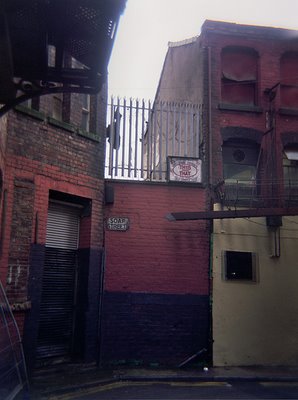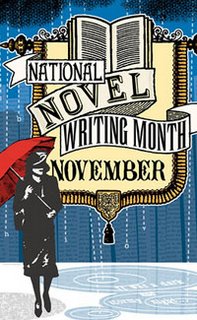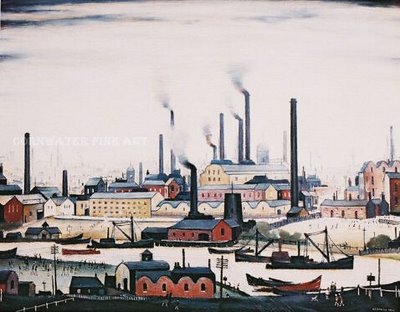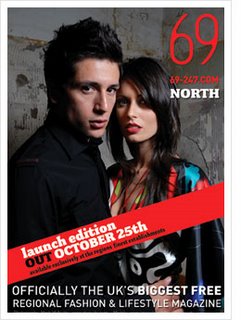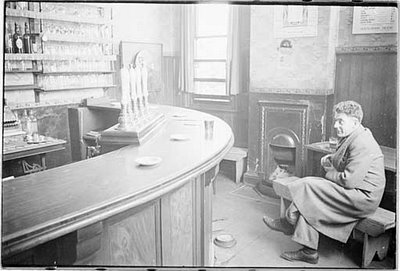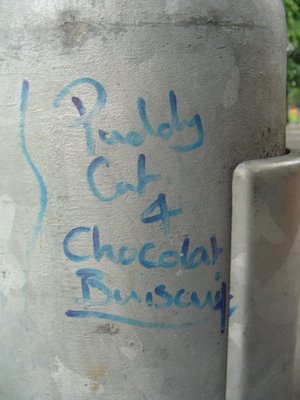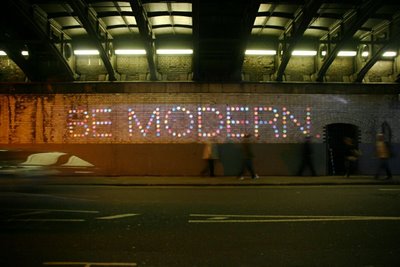I’m here to report back, as promised, on
Moving Manchester. Some of you may remember I’d made a disparaging comment about it
here. Surprisingly, the editorial team at MM responded with a rather peevish 400-word comment taking me to task, which you can read below the original comment. My favourite part is this:
As regards the difference between our magazine and a ‘real’ magazine, we would be interested to understand what, in your view, constitutes a ‘real’ magazine’. As we understand it, a magazine is “A periodical containing a collection of articles, stories, pictures, or other features”.Congratulations, you know how to use a dictionary. Here’s another word for you to look up:
pedantic. Okay, I’ve gotten that out of my system. I came here not to sharpen my snarkening shears but to take a long and hard look at Moving Manchester in order to determine one thing: Is it a real magazine or not? Let’s open the November issue.
MM seems keen to differentiate itself from a mere property magazine. A property “magazine” should be more rightly called a property brochure. The only reason they call it a magazine is because they hope we might be dumb enough to pick one up thinking it’s a magazine if they call it a magazine and make it look like one on the outside. Then, when we open it up, hey presto! It’s all ads: Aspiration Towers, Gentrifcation Wharf, GenericQuarter.
To be fair, MM has gone to a bit more of an effort than most property magazines to present something that resembles editorial content. But sadly, the resemblance is only a passing one. We have long, byline-free “articles” on property developments in Manchester, with marketing contacts thoughtfully provided. For instance, Macintosh Mills is “a six storey love song to Manchester’s Industrial Legacy,” the piece on page 10 tells us. The only person quoted is Sam Williams, regional sales manager for Bryant Homes. The text reads like ad copy, detailing all of the developments’ assets. No effort is made to provide an objective or alternative viewpoint about this development. I have to conclude that this is not an article. It’s advertising, marketing, promotion, or whatever you want to call it. But it’s not journalism. Worsley View is given the same gushing treatment on page 24. Dandara’s ‘concept’ apartments on Page 28. I’d go on, but you get the idea.
A magazine’s credibility rests entirely upon how readers perceive its independence. A close look at MM’s slick pages reveals a maze of advertorials, sponsored sections, ads made to resemble editorial, promotional contests and dubious page placement of the kind that immediately raises red flags. Even its columnists all seem to come with corporate ties and branding.
Take a look at the spread on page 46 and 47. A full-page ad for Magners Irish Cider placed opposite an “article” titled: Cider Revolution: The ‘New’ Cool Drink? The piece about cider’s remarkable rise in popularity barely mentions Manchester, but the Magners brand name appears five times, in contexts such as this:
“Perhaps there’s something about cider that is innately comforting. It could be that it makes us think of idyllic scenes, unspoilt countryside, trees sagging under the weight of their fruit, the lightly sparkling tang of apples helping you relax and enjoy midsummer sunsets…” Sorry, I can’t go on. I’m feeling a bit queasy. I mean, come on! We’re actually s’posed to believe that a journalist decided to write this ode to cider the wonder drink independently, with no financial encouragement from the gang at Magners? Maybe the piece wouldn’t seem out of place in Over-Poeticised Beverages Monthly, but it sticks out like a sore thumb in a Manchester lifestyle magazine. Something smells rotten. And it ain’t cider.
In a feature titled Decadent Delights: The Indulgent Guide to Manchester, we’re encouraged to check into the Moulin Rouge suite at the Malmaison Hotel, the delights of which are enumerated in breathless detail. The one detail they leave out is that Malmaison is listed on MM parent company BBDM’s website as a client. Guess the whole disclosure of conflict of interest thing isn’t a priority for the editorial team at MM. Unfortunately, it’s one of the most basic requirements of journalism, and non-negotiable for real magazines the world over.
I’m not saying that every article in MM is about a BBDM client or paid advertiser. Indeed, in this same issue I was quoted in an article about Manchester bloggers, an article that seems to have arisen out of a genuine sense of trying to communicate current happenings in Manchester. And I’m sure many of the other articles have the same innocent origin. But what are readers to think when they see so much in the publication that calls into question its editorial independence?
Is it a real magazine? No, as far as I’m concerned, it’s not.










